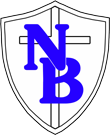History
We love history at North Bradley CE Primary School! We are surrounded by it all of the time in our beautiful, original school building and house that date from 1882. Our playground overlooks St Nicholas Church that dates from around 1316. Also, our ‘House’ system is related to our local history with the four houses being named: Broadley, Winchester, Stafford and Daubeney, which are all historically relevant names in the area.
Intent
At North Bradley, we want to stimulate children’s interest in the past and how it relates to their own lives. We want them to be able to empathise with people from the past and know about their own history in the context of their country and the wider world. We want children to have an excellent understanding of chronology. We aim to ensure that they have a knowledge of broad developments and historical periods and a 'mental timeline' of the past so that they can place their learning in context. Our topics are informed by the national curriculum as well as the context of the local area.
Implementation
We plan exciting history learning contexts, which immerse children in the past, better shaping their knowledge and understanding of events, people and places throughout history. Children secure historical knowledge as coherent narratives so that they can discuss broader developments across the periods that they have studied. We work to ensure pupils become curious about the past by looking for similarities and differences, cause and consequence and change and continuity. We aim for children to experience a wide range of quality historical sources, which they will learn to interpret, whilst also thinking about a source's reliability. These disciplinary skills are mapped out through our Programme of Study to ensure a clear progression and so that our children can 'think like a historian' and understand how historians study the past and construct accounts. Children use these historical disciplinary skills to weigh evidence, make connections, draw contrasts, identify trends and frame historical questions.
The Early Years Foundation Stage (EYFS) follows the ‘Development Matters in the EYFS’ guidance which aims for all children in Foundation Stage to have an ‘Understanding of the World; people and communities, the world and technology’ by the end of the academic year. We aim for our EYFS children to be able to talk about the lives of the people around them and their roles in society and know some similarities and differences between things in the past and now, drawing on their experiences and what has been read in class.
We drive our learning contexts with a key question that provides a purpose for learning.
Here are some examples of our enquiry based questions:
EYFS - How have I changed since I was a baby? What can we learn about Amelia Earhart's aircraft?
Year 1 - What was North Bradley like for my grandparents? Why should Guy Fawkes and the gunpowder plot never be forgotten?
Year 2 - What was it like to be a child worker in Victorian Britain? Would you rather work or be at school during the Victorian times?
Year 3 - What was life like in the Stone Age ? Which is more civilised- the Stone Age, Bronze Age or Iron Age?
Year 4 - When the Roman's invaded Britain, how did it affect those living there? What made the Ancient Egyptian civilisation a World Power?
Year 5 - Who was the most successful? Angle Saxons or Vikings? How different were the Maya to other Iron Age civilisations ?
Year 6 - How have Crimes and Punishments changed over time?
These questions also provide an ideal context for extending children's literacy in speaking and listening, reading and writing. We ensure that there is a balance between the acquisition of historical disciplinary skills and substantive knowledge so that at the end of the unit of work, pupils will be able to use this understanding to give a well reasoned, substantiated answer to the enquiry question.
We also explicitly teach substantive concepts to connect and evaluate historical knowledge and allow children to form historical perspectives.
- civilisation, tribe, nation, empire
- democracy, parliament, monarchy, power
- migration, settlement, trade
We carefully map these themes across the units and revisit them. Each time the children encounter a concept, their understanding of it becomes denser and more nuanced.
At the beginning of each unit, children are given a knowledge organiser which shows the key knowledge that will be covered throughout the learning context. Low stake quizzes happen at the beginning and end of each unit. This provides a means by which progress can be judged in terms of knowing more and remembering more.
Another way that we bring history alive for children is through drama, visits to places of historical interest (Stonehenge, Roman Baths, Trowbridge Museum, Fosbury Hill Fort (Oxenwood)), storytelling and visits from experts and ‘characters’ ('Horsa' the Viking Warrior, WW1 Tommy, Grace Darling’s father, Howard Carter).
Impact
Through following our History Programme of Study our children, by the end of KS2, will have gained a coherent knowledge and understanding of Britain's past and understand significant aspects of the history of the wider world.
Children will have a chronological understanding of British history from the Stone Age to the present day. They will be able to draw comparisons and make connections between different time periods and their own lives. Interlinked with this are the studies of world history: the ancient civilisations of the Greeks, Mayans and the Egyptians.
The children's work in their History books, low stake quizzes and well-reasoned and substantiated answers to the units enquiry questions show evidence of this broad and balanced history curriculum and demonstrates their acquisition of the key disciplinary skills, key knowledge and substantive concepts taught.


Social Media